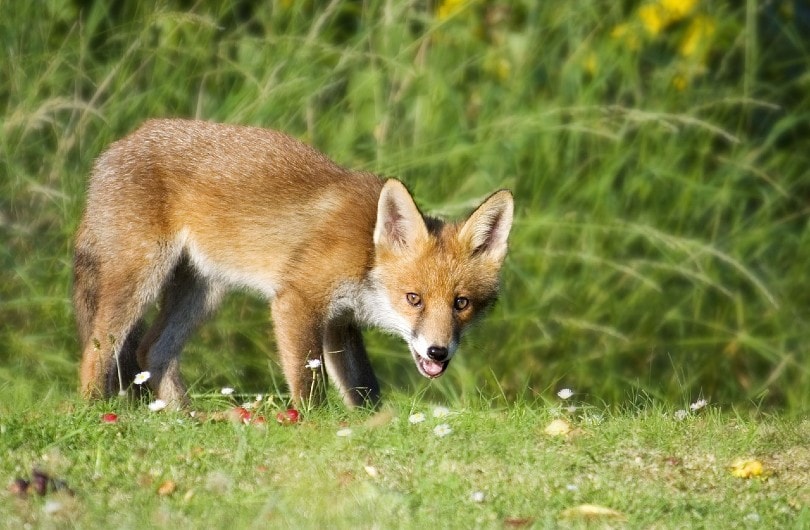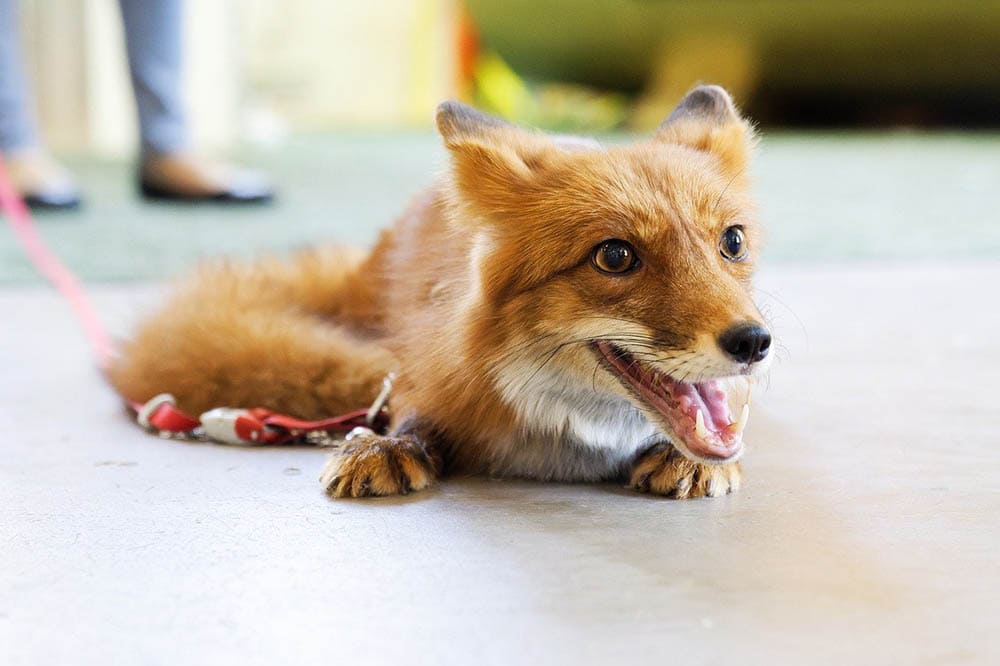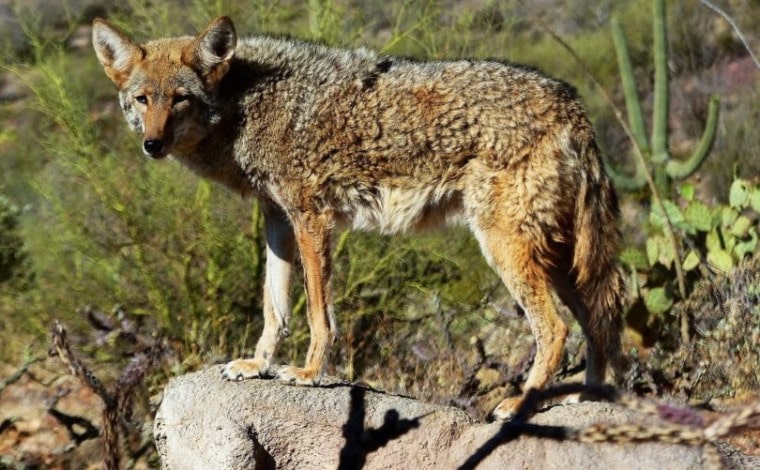
According to the American Pet Products Association, about 69 million households have dogs among their pets.1 It’s easy to understand why. After all, they don’t call canines our best friend for nothing. There are currently 200 breeds recognized by the American Kennel Club (AKC).2 While some are far removed from their coyote ancestors, some are decidedly closer, such as the German Shepherd, and look like wolves.
It’s not a stretch that some people would prefer dogs that resemble their wild counterparts like the coyote. Some may think that it seems cool to have one as a pet. However, it’s probably more of a romantic notion than a practical—or legal—one. Legality aside, having a coyote as a pet is an ill-advised idea at best. It goes the gamut, from domestication to aggression to the call of the wild.
The Legal Question
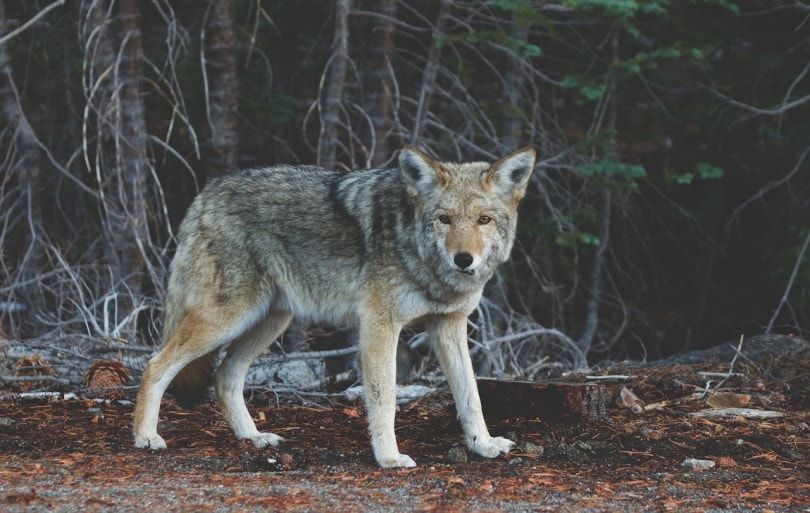
The first question to consider is the legal one. It’s the pass-go-and-don’t-collect-$200 answer. It’ll put the brakes on whether you can even think about owning a coyote as a pet. You’ll find that there are usually three levels of legality, depending on the state. They are:
The answer rests on several factors. One is whether the coyote is a resident animal. Then, the question becomes one of whether it’s a pest or not. The other factor is whether the coyote is a game species. Many states ban taking native wildlife from the wild for various reasons. Sometimes, it’s a health issue with animals that may transmit diseases to humans.
- Related Read: Unusual Pets that are Legal to Own in the US
Pest Control
Other times, a jurisdiction wants to keep a pest species under control. Coyotes are highly adaptable. It’s a factor that has helped the animals expand their range. Currently, they live in every state in the Union except Hawaii. If they were a stronger swimmer, the coyote would probably make its way there, too. They used to live just in the West, but they have since adapted to city and suburban life to do well there.
Livestock Predation
You’ll likely see that coyotes are prohibited where there is a history of livestock predation. Many states where there is ranching ban these animals because they are pests, with a risk that a pet that escapes would add to the problem. Making matters worse is the fact that these animals are habituated to the presence of humans.
- Related Read: Do Coyotes Attack And Eat Cats?
More Concerns
Sometimes, a state will allow coyotes as pets but want to know where they are. That may apply to private individuals owning one. They may permit them for scientific purposes. Those regulations often exist with research institutes or other wildlife facilities, such as rehabilitation institutions. Nature centers may include a coyote among their list of resident animals for educational tours.
Many jurisdictions consider coyotes dangerous or exotic animals. That’s often where the legal question rests. Of course, governments define this term differently, usually based on the local experience with human-coyote conflicts. Sometimes, it depends on the population density of a state. You’ll likely find that you can have coyotes and other animals in places where it’s sparsely populated.
The other deciding factor is whether or not the coyote is managed as a game animal. Some areas allow hunting or trapping of these animals for their pelts. Some states may allow other game hunters to take a coyote because it’s a nuisance animal. That designation may make owning one as a pet illegal. Therefore, your first calls are to your state DNR and city hall.
Domestication Issue

The other question about coyotes is whether you can domesticate them. It’s helpful to put it in context with our pet dogs. Dogs and wolves share a common ancestor. The former branched off to become its own species about 27,000 years ago. Archaeological evidence suggests that humans domesticated dogs about 14,000 years ago.
A lot has happened since that time. Dogs have evolved to adapt well to living with humans. Their diet has changed. Humans have selectively bred canines for many traits, including hunting, herding, and companionship. So, we’re talking hundreds of years together. That’s not the case with coyotes, which are essentially wild animals.
Domestication isn’t simply a matter of raising a coyote as a puppy. Instinct will kick in when a coyote sees a rabbit—or the family cat—run away. It’ll likely present problems with any other dogs in the household or neighborhood. Coyotes are still coyotes and will probably act aggressively toward any other canine it encounters. Remember that these instincts still exist with domesticated dogs, too.
Safety Spin
We must also consider the safety of owning a coyote. Consider the facts. Coyote attacks on humans have been increasing in recent years. Many are brazen, broad daylight conflicts. Part of the reason is habitat encroachment. As more people move into areas where coyotes live, the greater the chances of an encounter. Since they are so well-adapted to people, they are less likely to back off and retreat.
That means having a pet coyote may likely bring wild canines to your property. Even if your companion won’t hurt you, that doesn’t mean another animal won’t. The other thing to consider is other dogs in your neighborhood. Coyotes have attacked domesticated pets in breeds of all sizes, although smaller pups are at a greater risk. You’ll probably find that your neighbors won’t welcome your coyote.
We also have to think about some practical matters, such as veterinary care. You may find it difficult to locate a vet who will treat your pet for basic care, including vaccinations. After all, coyotes can carry rabies. However, just because they are canines doesn’t mean the same treatments work with coyotes. Most likely, you’d have to find a vet who specializes in exotic animals.
We’re not even scratching the surface about other things, such as housebreaking, neutering, and training. Coyotes are intelligent animals, but that doesn’t mean you’ll be able to teach one to sit and stay, even with some treats as motivators.
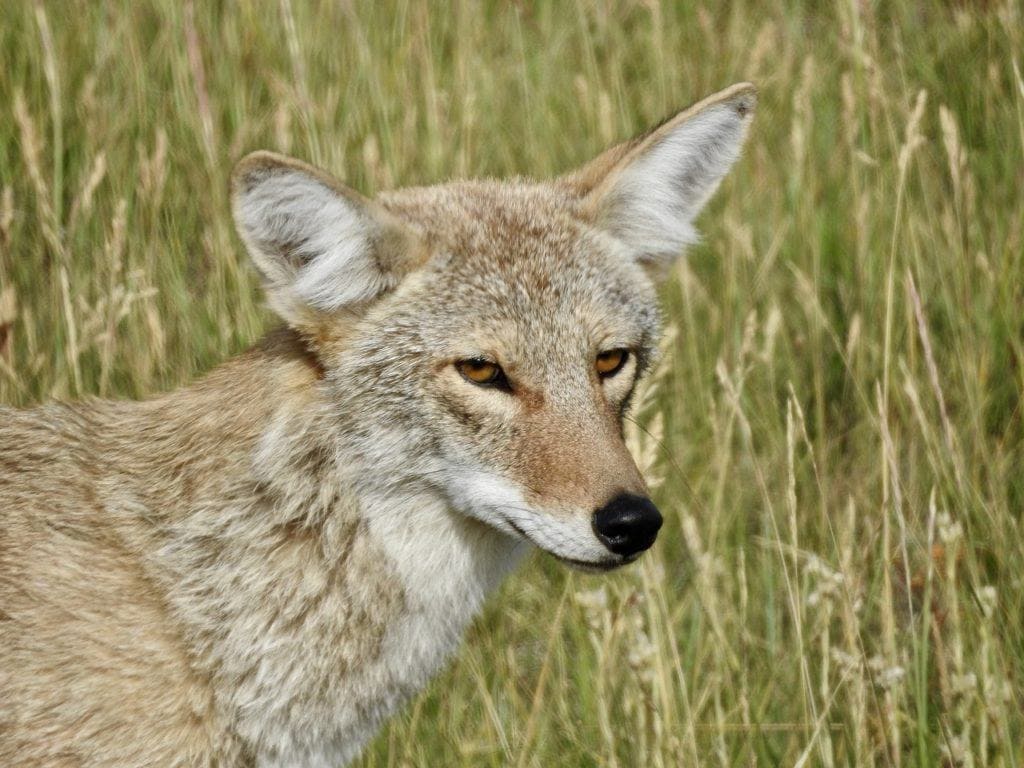
Final Thoughts
While we can understand the desire to have a coyote as a pet, there are too many things going against it from several viewpoints. The greatest barrier is likely the legal one, depending on where you live. It’s worth mentioning again that the places where it’s most likely to be allowed are sparsely populated areas that minimize the risk of a conflict. There’s a good reason for that fact.
The other consideration is safety. Long-term domestication doesn’t exist with these animals. That can make their behavior unpredictable and dangerous. Needless to say, coyotes are not an ideal choice for the first-time pet owner. We can admire the coyote for its intelligence and adaptability. It’s a survivor. However, they’re probably best enjoyed listening to their howling at night as they roam the plains.
See also:
- Can You Keep a Jackal as a Pet? Can They Be Domesticated?
- Will Coyotes Eat Dog Food? How to Keep Them Away from It
Featured Image Credit: rauschenberger, Pixabay


